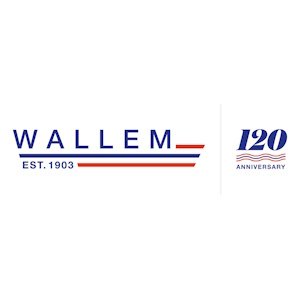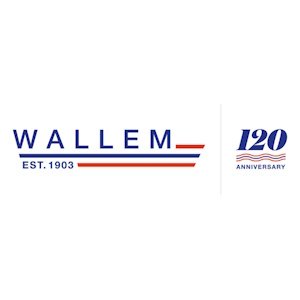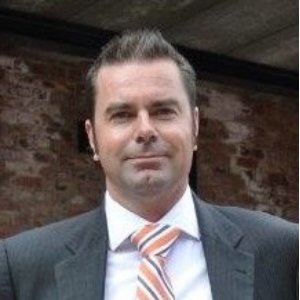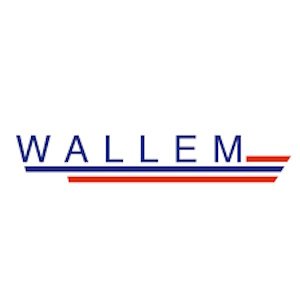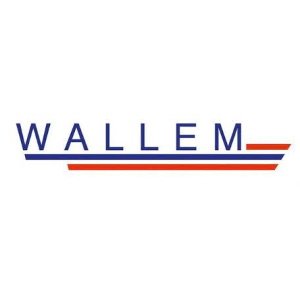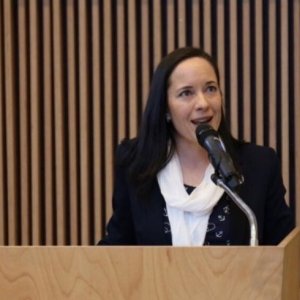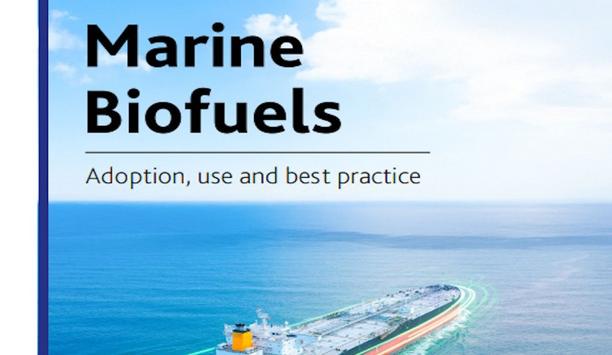Wallem Group - Experts & Thought Leaders
Latest Wallem Group news & announcements
Wallem Group, a major global maritime partner, has published a new whitepaper to ensure ships, ship systems, and crews are fully prepared to load, store, and use biofuels in everyday vessel operations. ‘Marine Biofuels: Adoption, use, and best practice’ recognises the contribution that biofuels can make to maritime decarbonisation, while also offering comprehensive guidance on the precautions owners and crew need to consider before and during use. Biofuels to reduce greenhouse gas Biofuels have established a market position among owners seeking to reduce greenhouse gas emissions Biofuels have established a market position among owners seeking to reduce greenhouse gas emissions at a time when alternatives, such as Renewable Fuel of Biological Origin (RFNBO), zero-carbon hydrogen, ammonia, or e-methanol remain unavailable. Permissible biofuel well-to-wake emissions intensity has been defined by the International Maritime Organization (IMO) as at least 65% of Marine Gas Oil (MGO). However, with a lower calorific value than fossil fuels, biofuels also present adoption challenges that require close attention from procurement, technical and vessel operating personnel, notes Abhijit Ghosh, Head of Maritime Technology and Innovation, Ship Management, Wallem Group. Scope of the whitepaper The whitepaper examines the regulatory landscape surrounding marine biofuels, but also the specifics of IMO compliance, and the transparency needed to use fuels that vary batch to batch. It explains how these blends of Fatty Acid Methyl Ester (FAME) and residual or distillate fuels impact storage tanks, fuel systems, machinery, and crew training, also reflecting on the need for additional insurance cover. Recommendations for owners Based on experience, Wallem has particular recommendations for owners on the assurances they need from equipment suppliers before introducing biofuels. It also explores the consequences for biofuel users of improper blending, acidity, biodegradation and microbial growth, fouling, waxing and clogging. The publication provides best practice recommendations for testing, materials selection, segregation, temperature control, tank cleaning and fuel line flushing. For long-term biofuel use, Wallem recommends that engines are retrofitted with hardened fuel pumps and corrosion-resistant coatings. Importance of crew training The whitepaper also considers crew training gaps and offers recommendations for monitoring, measuring, and checking biofuel use to ensure that personnel, systems, and the ship remain safe. "The combination of a centralised digital system for real-time tracking and analysis of biofuel consumption and a skilled and well-trained crew can be transformative for enabling the future-ready maritime fleet," says Abhijit Ghosh.
Smaller shipowners seeking expansion, as well as multinational corporations entering the maritime industry for the first time, often encounter a shared challenge: the complexities of the market frequently exceed their own expertise and that of the advisors they typically consult. However, what may be a perceived obstacle to maritime business development has become a catalyst for growth within Wallem Group, manifested in the success of Wallem Commercial Services. Range of capabilities Wallem Commercial Services initially focused on areas such as commercial ship and cargo management Expanding its range of capabilities has helped Wallem Commercial Services achieve double-digit growth over the last couple of years, based on its ability to boost the performance of its partners. Launched in 2008, Wallem Commercial Services initially focused on areas such as commercial ship and cargo management, broking, chartering and S&P, but has evolved to take in insurance, advisory financial services, loan facility and distressed asset management as core activities. Role of shipowner for companies The unique portfolio of capabilities means that Wallem Commercial Services can effectively perform in the role of shipowner for companies without their own expertise, or act as the point of worldwide contact for smaller owners wishing to serve different vessel types or enter new markets. In doing so, Wallem’s Commercial Services team leverages Wallem Group’s experience in areas that are usually closed to third-party managers – such as market research, commercial knowhow, back-office support and asset financing. Closer to market Evolution has enabled Wallem to provide a one-stop service for ship owners seeking new opportunities Originally set up to help Wallem get closer to shipping markets as a ship broker based in Hong Kong, Wallem Commercial Services moved into sale and purchase activities. After it started acting on behalf for a distress asset management company, it expanded into operating vessels commercially as well as technically. Over time, evolution has enabled Wallem to provide a one-stop service for ship owners seeking new opportunities, diversification or to deal with increasingly complex regulatory requirements and financial modelling. Wallem Commercial Services works with a number of international shipowners in support of bulk carriers, tankers, chemical tankers and PCTC vessels. Support of vessel operations In Asia, its activities have been driven by large commercial groups seeking to enter shipping markets where they see strong opportunities to assist their growth. An example has been an unfolding relationship with a giant Chinese automaker, where Wallem has provided day-to-day support of vessel operations, including cargo stowage, route and bunker planning for the manufacturer’s first fully chartered PCTC vessel. That work led on to providing support for other maritime functions such as cargo bookings and vessel performance management, with Wallem emerging as a key value-add partner, providing support to the Automaker’s vision for fleet expansion. Confidential partners Smaller ship owners that lack the management help or in-house expertise to expand into new sectors Wallem’s 122-year legacy of quality operations also puts the group in a strong position to work with new interests as counterparty. It takes boldness for industrial groups to become ship owners, no matter how large they are, but Wallem Commercial Services has the attributes to manage the transition safely and efficiently, and to help build the teams and strategy that will lay the best foundations for their businesses. Smaller ship owners that lack the management resources or in-house expertise to expand into new sectors or wish to go from a local base to global operations have also benefited from partnering with Wallem Commercial Services. Alternative financing for shipping markets In these cases, private owners can prefer to keep relationships confidential but, for example, a Chinese and Southeast Asian ship owners may want to work worldwide, and Wallem can help by facilitating negotiations with established charterers and operators. In addition, Wallem draws on longstanding relationships with oil majors and big commodity players, for example, and enjoys a growing niche position with Asian financiers due to its close ties with Chinese and Japanese leasing houses. They have seen the need for alternative financing for shipping markets grow because of the size of investments, and a reduced appetite from traditional bankers. Chinese and Japanese finance leases are often now a more attractive way to fulfil new investors’ requirements as ship owners. Technical challenges A major challenge for all owners, new or established, is the changing technological sphere A major challenge for all owners, new or established, is the changing technological sphere and environmental regulatory requirements as the industry gets to grips with digitalisation and decarbonisation. They also see a growing number of queries regarding what owners need to do to improve vessel efficiency, as it can be extremely difficult for ship owners to plan which new technologies will make their fleets more sustainable and which alternative fuels will be available worldwide. EU ETS and FuelEU Maritime regimes Wallem has developed its own advisory software in-house to help make vessels more efficient and find what routeing and utilisation will achieve the best environmental ratings under the CII system. They can work with owners’ own IT to ensure that the best stowage, routing or hardware options are selected to ensure regulatory compliance for the EU ETS and FuelEU Maritime regimes, for example. Multiple ship types Wallem Commercial Services is involved with owners at the strategic level over how these issues will develop Increasingly, Wallem Commercial Services is involved with owners at the strategic level over how these issues will develop, utilising the experience and connections to develop project management pathways with the customers. Across multiple ship types, Wallem Commercial Services will continue to serve the best interests of its partners, whether by giving smaller owners the network they need to achieve sustainable growth, or by putting the strong operational capabilities at the disposal of international conglomerates. Investment based on sustainability criteria In fact, they believe there are opportunities in every situation; the ‘right’ answer may not be the same for all because much depends on the position of the asset and the owner in the investment cycle. For instance, a vessel may at one and the same time be a candidate for investment based on sustainability criteria which one owner wants to sell and another to buy.
Wallem Group, a global maritime partner, has released its Environmental, Social, and Governance (EGS) report, reinforcing its commitment to safe, sustainable, and responsible practices across its ship management, ship agency, and crewing businesses. Safe and smart operations In reaffirming its role as a trusted global partner delivering industry-renowned services, the report stresses Wallem’s mission to support safe and smart operations at a critical moment for its clients and the wider maritime stakeholders. The Group’s comprehensive strategy for ESG excellence is also encapsulated in a people-oriented approach that prioritises the needs of seafarers. International, national, and local compliance Wallem underlines the necessity of regular crew training to support ship owners The new report emphasises how compliance with international, national, and local requirements to reduce CO2 emissions demands continuous updating of policies and procedures to ensure best practices. In underscoring its commitment to compliance with the IMO 2030 and 2050 targets for CO2 emissions reduction, Wallem underlines the necessity of regular crew training to support ship owners in implementing sustainable technologies. Ship-specific solutions Figures included in the latest report show how the implementation of ship-specific solutions and plans offers tangible evidence that policies to reduce emissions and enhance ESG are working in practice. Wallem also emphasises its commitment to continual improvement in the prevention of pollution and meeting or exceeding relevant regulations or requirements. Anti-discriminatory practices The report also highlights the Group’s dedication to staff well-being. The crew working on all Wallem vessels have access to a network of Mental Health Champions on board. Wallem also enforces anti-discriminatory practices throughout the company to ensure that high levels of diversity and gender equality goals are attained. Transparent, responsible practices “Wallem Group has taken onboard the increasing importance of ESG practices across the maritime industry and this report shows both the progress we have made and the work we continue to do to demonstrate our commitment to transparent, responsible practices for our stakeholders,” said John Rowley, CEO, Wallem Group. He adds, “We continue to work in partnership with our clients towards a safer and more sustainable maritime future, where crew well-being and decarbonisation is firmly at the heart of our business success.”

